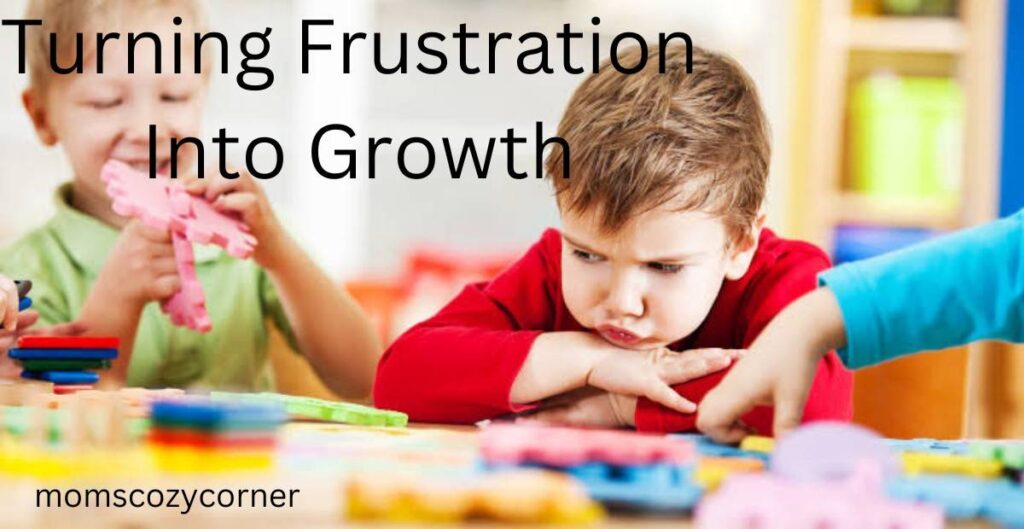Guide Your Strong-Willed Child to Success
Introduction
To parent a strong-willed child is definitely challenging, but also really special and rewarding. You, as a stay-at-home mom, are in the front seat shaping their future with them. With time, planning, and a little creativity, you can get them to use their individual skills without making your home feel like an all-out war zone.

How to Determine if Your Child is a Strong-Willed Child
Children with a strong will often want to do things their way. They insist on winning and may show off or challenge adult authority. Because they resist being told what to do, they prefer things to be their own choice. Additionally, they are extremely persistent once they have set their mind on something.
Dealing with a Strong Willed Child
Stubborn kids aren’t behaving this way to be naughty. They often have clear ideas and visions of what they want to do, and their perception of life is strong. Their need for control reflects a desire to show self-sufficiency. Recognize this mentality and gain insight into the cornerstone of good parenting, ensuring that you, too, can be a contributing member of their growth as you parent a strong-willed child.
Discovering Their Leadership Capability
Strong-willed children are future leaders. They are eager to be in control of the situation and their environment. If they act like a boss at home, rather than fighting that behavior, embrace it and allow them to have more of a leader role. Include them in decision-making at home, e.g., planning a family day out or delegating tasks. You are giving them an opportunity to grow their leadership—the best of both worlds, where you nurture confidence without indulging in mismanagement.
Transforming Stubbornness in Problem-Solving Skills
Determination is commonly a big part of what makes strong-willed kids so… hardheaded? To parent a strong-willed child, leverage that by creating situations where their stubbornness can be best applied. When you face a struggle, ask them how they would tackle it. It will get them thinking in more critical ways, and they will also learn important life lessons like grit (the hard work ethic)—trying over and overcoming hurdles, be it puzzle games or their limited daily playtime negotiations.
Utilizing Creative Outlets for Expression
The temper of a strong-willed child can easily lead them to have big emotions they may outgrow or struggle to control. Adding ways for them to express themselves in a healthy way, such as drawing, singing, or playing pretend, helps too. Providing them these activities at home can enable the expression of emotions and prevent power struggles.
Fostering self-reflection and accountability
One does not have to establish rules alone for discipline. To parent a strong-willed child, guide your child to think about what they have done and its results. If they resist, as in not tidying their room, ask them how it felt when some of the toys got lost or broken. This helps associate between action and consequences; it creates personal accountability in a positive way.
Flexible but organized
Strong-willed children need both routine and independence. They are structured but hate to be controlled. For instance, you could establish bedtime and meal times yet enable them to select the books they read before sleep. It keeps them engaged and resistance is minimized.
Forming emotional resilience together
Determined children often struggle with frustration and disappointment. An excellent way to do this is by demonstrating resilience yourself. And when things do not go according to what you want, tell how you are feeling and how you deal with it. For instance, give some insight into how you get through the day when it doesn’t go as planned and make them see that failure is a part of life. When you parent a strong-willed child, it develops their emotional resilience and imparts the lesson that failure is a beginning, not an end.

Early Lessons in Negotiating
The best tool you can give to a strong-willed child is the skill of negotiation. Teach them how to express their needs and listen to others instead of all disagreements turning into a power battle. For example, if they want more screen time, suggest that they explain the reason why and tell you a compromise. It is a way to teach them how to communicate and compromise—great life lessons.
Redirecting Power Struggles into Collaboration
Power struggles are a common occurrence with strong-willed kids, but instead of getting caught in a tug-of-war, consider shifting the focus to collaboration. Present challenges as joint efforts by saying, “Let’s work on this together.” For instance, if they’re reluctant to do their chores, collaborate with them to set achievable goals for completing tasks. This changes the emphasis from defiance to teamwork when you parent a strong-willed child.
Fostering Inner Motivation Instead of Compliance
Strong-willed children tend to respond more positively to inner motivation rather than external rewards or punishments. Help them grasp the reasons behind rules and decisions. Instead of concentrating on punishment for not following directions, emphasize the benefits of their actions. For example, rather than saying, “You have to eat vegetables because I said so,” explain how eating well can make them feel stronger and healthier. This approach nurtures intrinsic motivation and fosters a sense of responsibility.
Conclusion
For stay-at-home moms in the USA, raising a strong-willed child presents both challenges and significant rewards. These children often possess leadership qualities and, with the right support, can develop resilience and self-sufficiency. By encouraging their independence, providing a balanced structure, and instilling a sense of accountability, you can help transform their determination into a powerful asset when you parent a strong-willed child. How do you plan to support your strong-willed child in reaching their full potential?




